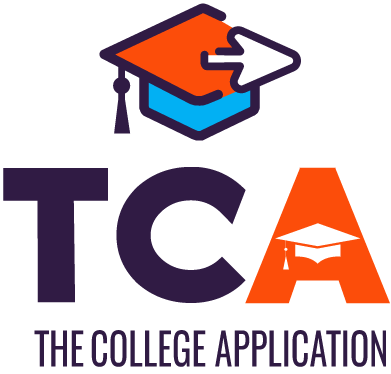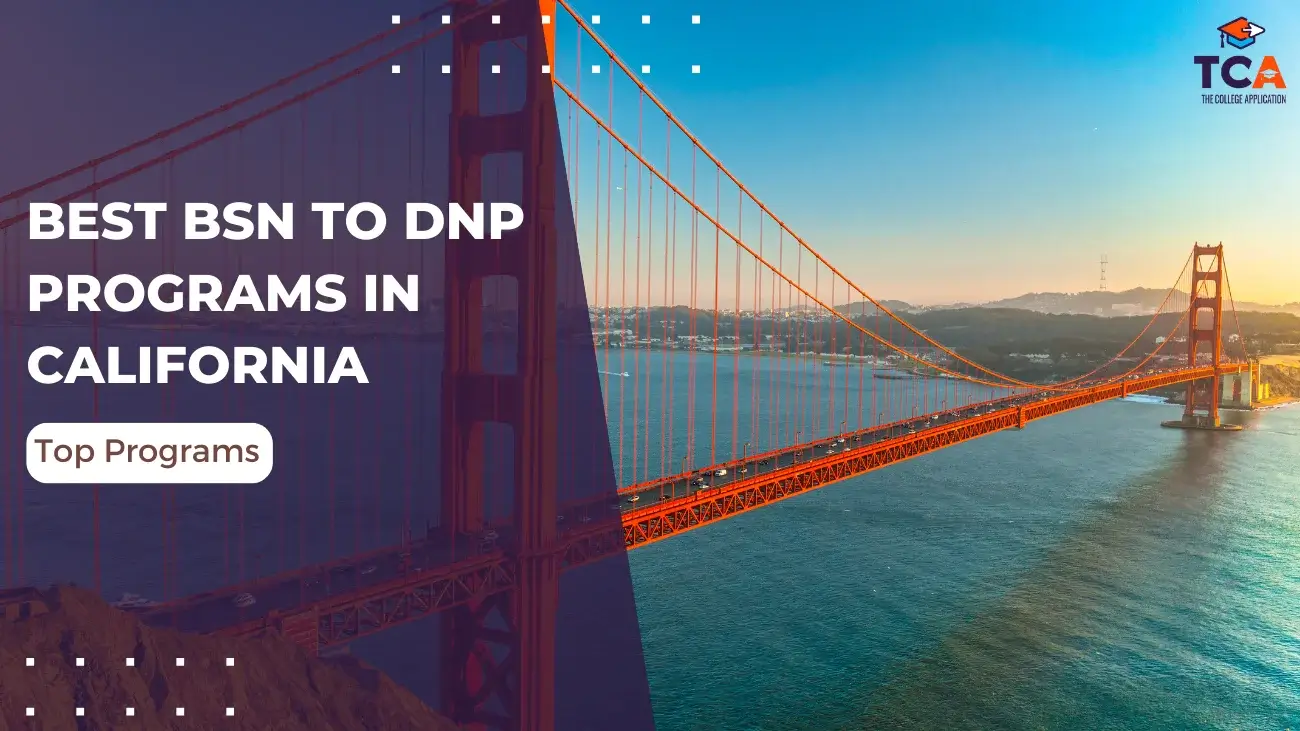With soaring demand for advanced practice nurses, it is a perfect time to consider BSN to DNP programs in California.
The DNP program will prepare you to deliver advanced, patient-centered care across different settings and populations, and also to lead healthcare systems and organizations.
Some of the fulfilling post-DNP roles in California include:
- Nurse Practitioner (NP)
- Certified Registered Nurse Anesthetist (CRNA)
- Clinical Nurse Specialist (CNS)
- Nurse Administrator
- Nurse Educator
- Nurse Informatics Specialist
Here is a list of the best CCNE-accredited BSN to DNP programs in California.
8 Best BSN to DNP Programs in California
1. California State University, Long Beach BSN to DNP Program
The BSN to DNP at Cal State Long Beach is an intensive program comprising 72-semester units spread over 3 years if pursued full-time.
Breaking it down, there are 39 units of core courses, 24 units of specialized clinical courses, and 9 units dedicated to a doctoral project. A substantial part of your learning will be hands-on, with a minimum of 1,000 hours spent in clinical practice.
Currently, a part-time option is not available.
Format
The CSULB BSN-DNP program uses a hybrid format, blending the flexibility of online learning with the engagement of face-to-face sessions.
Choose Your Track
To align with your career aspirations, you can choose to specialize in one of the five nurse practitioner areas:
- Adult-Gerontology Primary Care
- Adult-Gerontology Acute Care
- Family Practice
- Pediatric Primary Care
- Psychiatric-Mental Health Across the Life Span
Outcomes
The CSULB BSN-DNP program prepares you for advanced roles in nursing, sharpening your expertise in evidence-based inquiry, leadership, and health policy advocacy.
Whether your goal is to excel as an educator, practitioner, or leader, this program is designed to push you to the peak of your career.
2. University of San Diego BSN to DNP Program
The University of San Diego’s BSN to DNP program offers a comprehensive curriculum yet flexible enough to meet your needs. It’s a 3-year journey if you’re considering full-time study, or extend it to 4 or 5 years for part-time attendance.
This campus-based program requires you to come to the campus a minimum of two days a week.
Choose Your Track
You can select from:
- Dual Adult-Gerontology/Family Nurse Practitioner (81 units)
- Dual Pediatric Nurse Practitioner/Family Nurse Practitioner (82 units)
- Health Systems Leadership (70 units)
- Family Nurse Practitioner (78 units)
- Family Nurse Practitioner in Emergency Care (83 units)
- Nursing Informatics and Data Science (73 units)
- Psychiatric-Mental Health Nurse Practitioner (78 units)
What We Like
What sets this program apart is the unique dual-track options. This approach allows you to gain proficiency in more than one area, broadening your scope and enhancing your capabilities as a nurse practitioner.
3. Azusa Pacific University BSN to DNP Program
APU’s BSN to DNP program offers a blend of flexibility and structure. Spanning 67 to 76 units, the program allows you to choose between full-time and part-time study, catering to your individual schedule and commitments.
The course structure is primarily online.
Choose Your Track
The program provides two distinct tracks for you to choose from, depending on your career goals and areas of interest:
- Family Nurse Practitioner (FNP) Option
- Health Systems Leadership Option
Online or On-Campus Intensive
The program incorporates an intensive experience each semester. These intensives, which take place either online or in Monrovia, California, typically happen on a Friday and Saturday.
Clinical Residency and Scholarly Project
To wrap up your DNP degree, you’ll undertake a minimum of 1,000 hours of clinical residency. Additionally, the program culminates with a DNP Scholarly Project, enabling you to apply the theoretical knowledge gained during your studies in a practical setting.
4. California State University, Fullerton BSN to DNP Nurse Anesthesia program
Partnered with the Kaiser Permanente School of Anesthesia (KPSA), CSUF provides an intensive DNP Nurse Anesthesia concentration.
The program is a 3-year, full-time commitment spread across 9 semesters. It requires a dedication of 109 units of study, incorporating both a doctoral project and clinical hours dictated by KPSA’s competency guidelines.
A Curriculum Designed for Excellence
The course content is tailored to foster advanced skills and knowledge in the field. It covers a wide array of subjects from advanced evidence-based practice and proposal writing, to data management in healthcare.
Besides, you’ll delve into theories in nursing and other healthcare disciplines, with a special focus on their practical applications. Importantly, the curriculum encourages sound decision-making within legal and ethical frameworks in a complex healthcare and policy-making system.
Your Learning Journey
The program’s structure places core nursing and anesthesia courses early in your academic journey. The second year ushers in the scholarly project work phase, which spills over into the early part of the third year, along with your first taste of anesthesia clinical practice.
At the end of the three-year course, you’ll have a solid understanding of anesthesia theory and lots of hands-on clinical experience. These final elements are carefully crafted to prepare you for national certification and successful entry into CRNA practice.
5. Loma Linda University BSN to DNP Program
LLU’s BSN to DNP program ranges from 3 years for full-time students to a stretched-out 5-year plan for part-time participants, depending on your chosen track.
Format
Except for the Nurse Anesthesia track, all other pathways are primarily online-based, making the program remarkably accessible.
However, to ensure you gain a well-rounded experience, LLU does require you to be on campus for 4-10 days each quarter, blending online convenience with the richness of in-person interaction.
Choose Your Track
- Adult-Gerontology Acute Care Nurse Practitioner: 3 years and 9 months (full-time) or 5 years (part-time)
- Acute Care Pediatric Nurse Practitioner: 3 years and 9 months (full-time) or 5 years (part-time)
- Clinical Nurse Specialist: Adult/Gerontology (CNS): 3-4 years (full-time) or 5 years (part-time)
- Family Nurse Practitioner: 3 years and 9 months (full-time) or 5 years (part-time)
- Neonatal Nurse Practitioner: 3 years and 9 months (full-time) or 5 years (part-time)
- Nurse Anesthesia: 3 years (full-time only)
- Nurse Leadership: 3 years and 9 months (full-time) or 5 years (part-time)
- Primary Care Adult/Gerontology Nurse Practitioner: 3 years and 9 months (full-time) or 5 years (part-time)
- Primary Care Pediatric Nurse Practitioner: 3 years and 9 months (full-time) or 5 years (part-time)
- Psychiatric Mental Health Nurse Practitioner: 3 years and 9 months (full-time) or 5 years (part-time)
6. Point Loma Nazarene University BSN to DNP Program
PLNU’s BSN to DNP Program is a 3.3-year long program, with 76 units. It is entirely online, offering an asynchronous learning format. This means you can continue working in your nursing field while pacing yourself with your studies.
But be ready for two on-campus intensive weekends to spice up your online learning experience.
To ensure you get comprehensive hands-on experience, the program demands the completion of 1000 clinical hours. This includes a minimum of 750 hours of direct patient care and another 250 hours dedicated to your DNP project.
Choose Your Track
- Clinical Nurse Specialist (CNS) track with options of Adult-Gerontology CNS, Pediatric CNS, or the Adult-Gerontology CNS track with a women’s health specialty
- Family Nurse Practitioner track
The MSN Stop-Out Option
PLNU understands that your needs might change as you proceed through your studies. So, if you decide not to complete a DNP degree prior to the 3rd graduate semester, you’ll receive an MSN degree instead.
7. Samuel Merritt University BSN to DNP Program
The SMU BSN to DNP program is thoughtfully curated to offer you a blended learning experience. Spanning 3 years, the program is primarily online, allowing you the flexibility to learn at your own pace and balance your professional commitments.
However, there are occasional on-campus intensives and clinicals.
Choose Your Specialty
The program offers three distinct tracks for BSN RNs:
- Psychiatric Mental Health Nurse Practitioner: This 3-year track, spread over 9 semesters, requires the completion of 66 units. You’ll delve into the mental health aspects of nursing, empowering you to offer specialized care to those in need.
- Family Nurse Practitioner: A similar 3-year, 9-semester commitment as the previous track, but with 65 units. You’ll focus on comprehensive healthcare for families and individuals throughout their lifespan.
- Anesthesia: This unique track is exclusively offered at the Oakland campus location, requiring a 36-month commitment with 94 units. You’ll gain a thorough understanding of the administration of anesthesia and related care.
8. University of St. Augustine for Health Sciences BSN to DNP Program, San Marcos, CA Campus
USAHS BSN to DNP Program provides 2 pathways:
I. Family Nurse Practitioner Specialty
This pathway, spanning 4 years, blends online coursework with an on-campus clinical intensive. It consists of 71 credit hours and 1,035 practicum hours.
As an FNP graduate, you’ll work alongside families across their lifespan, promoting preventative care, diagnosing conditions, and managing acute and chronic illnesses.
II. Nurse Executive Specialty
This 3-year and four-month course focuses on online coursework with optional virtual immersions. It includes 64 credit hours and 1,000 practicum hours.
The goal is to prepare you for leadership roles in nursing – think manager, director, supervisor, or chief nursing officer. You’ll be equipped to handle HR management, healthcare finance, and economic operations.
Admission Requirements for BSN to DNP Programs in California
- Bachelor of Science in Nursing (BSN): Earned from an accredited institution.
- Registered Nurse (RN) License: An active and unrestricted RN license.
- GPA: Typically, a minimum GPA of around 3.0 in your BSN degree is required, but this can vary by program.
- Experience: Most programs require at least 1 year of RN work experience, but this varies by institution and program track.
- Letters of Recommendation: Professional references attesting to your qualifications for advanced nursing practice are typically required.
- Statement of Purpose or Personal Essay: This should outline your career goals and explain why you’re interested in the program.
- Resume/CV: This should include your nursing experience and any other relevant qualifications.
- Interview: Some programs require an interview as part of the application process.
FAQs- Answered
Most BSN to DNP programs in California take at least 3 years of full-time study to complete.
| Role | Annual Median Salary |
|---|---|
| Nurse Practitioner | $158,130 |
| Nurse Anesthetist | $ 246,510 |
| Nurse Administrator/Manager | $110,730 |
| Clinical Nurse Leader | $104,559 |
| Clinical Nurse Specialist | $127,863 |
| Certified Nurse Midwives | $169,530 |
Disclaimer:
- Information on these programs may change without notice. So, we cannot guarantee their authenticity and accuracy. You’d have to check with the school and do further research. Our review list is simply for guidance and cannot be relied upon exclusively without research on your part.
- Before enrollment, check with your state regarding licensing rules or whether your desired program meets your home state’s certification requirements and licensure.
Related Nursing Programs:
5 Best Nursing Schools in San Diego, California Today
9 Best BSN to DNP Programs in Texas
Related Nursing Resources:
The Difference Between Nurse Practitioner And Doctor
How to Write the Nursing School Personal Statement: Steps, Tips, And Samples


